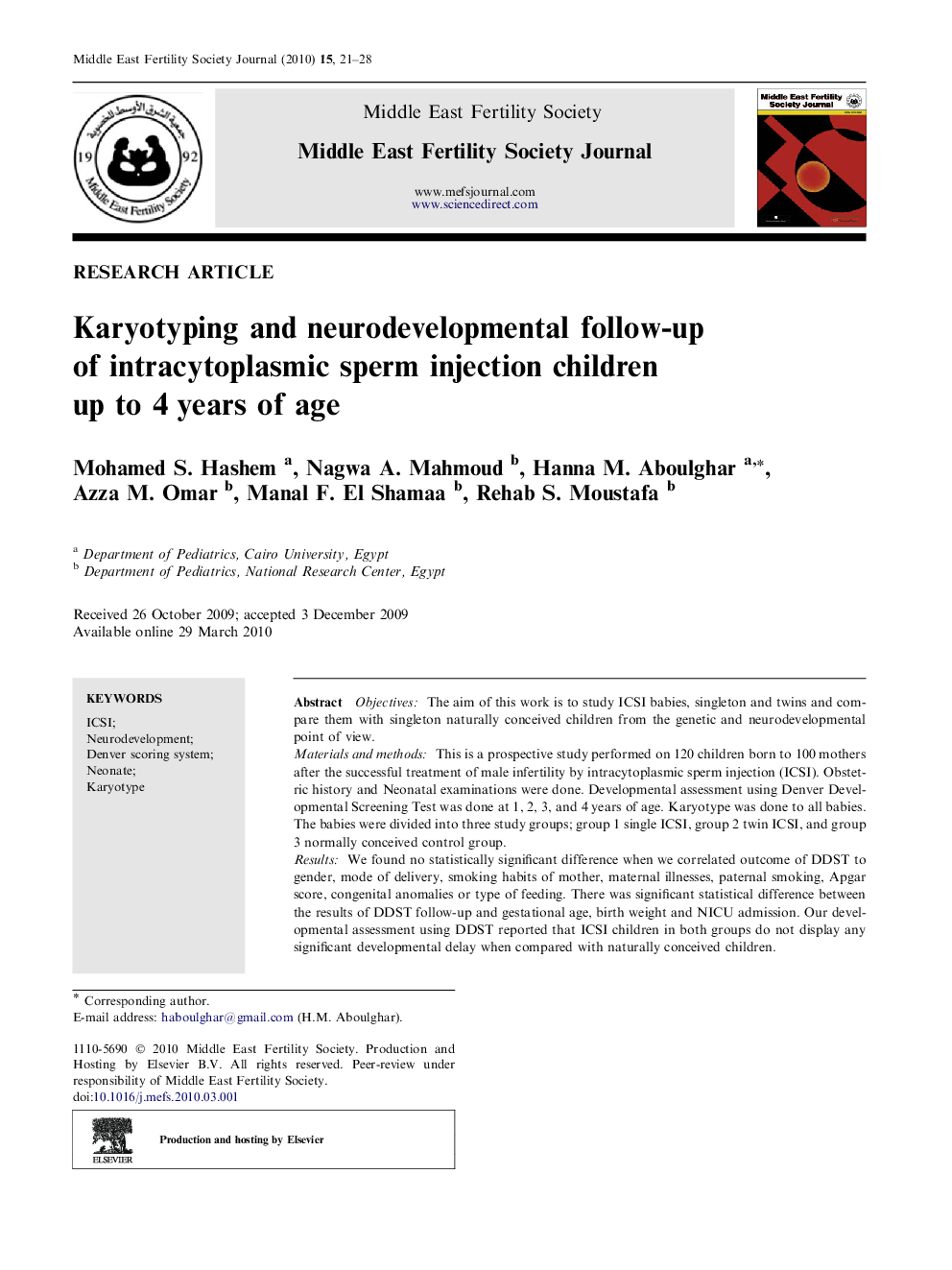| Article ID | Journal | Published Year | Pages | File Type |
|---|---|---|---|---|
| 3966477 | Middle East Fertility Society Journal | 2010 | 8 Pages |
ObjectivesThe aim of this work is to study ICSI babies, singleton and twins and compare them with singleton naturally conceived children from the genetic and neurodevelopmental point of view.Materials and methodsThis is a prospective study performed on 120 children born to 100 mothers after the successful treatment of male infertility by intracytoplasmic sperm injection (ICSI). Obstetric history and Neonatal examinations were done. Developmental assessment using Denver Developmental Screening Test was done at 1, 2, 3, and 4years of age. Karyotype was done to all babies. The babies were divided into three study groups; group 1 single ICSI, group 2 twin ICSI, and group 3 normally conceived control group.ResultsWe found no statistically significant difference when we correlated outcome of DDST to gender, mode of delivery, smoking habits of mother, maternal illnesses, paternal smoking, Apgar score, congenital anomalies or type of feeding. There was significant statistical difference between the results of DDST follow-up and gestational age, birth weight and NICU admission. Our developmental assessment using DDST reported that ICSI children in both groups do not display any significant developmental delay when compared with naturally conceived children.ConclusionDevelopmental assessment performed in this study revealed reassuring findings, no important differences between ICSI and NC children were noticed indicating that infertility treatment by ICSI technique does not appear to affect the development of child. It also highlights the need for continuous follow-up to evaluate whether ICSI children continue to show satisfactory development later in life.
